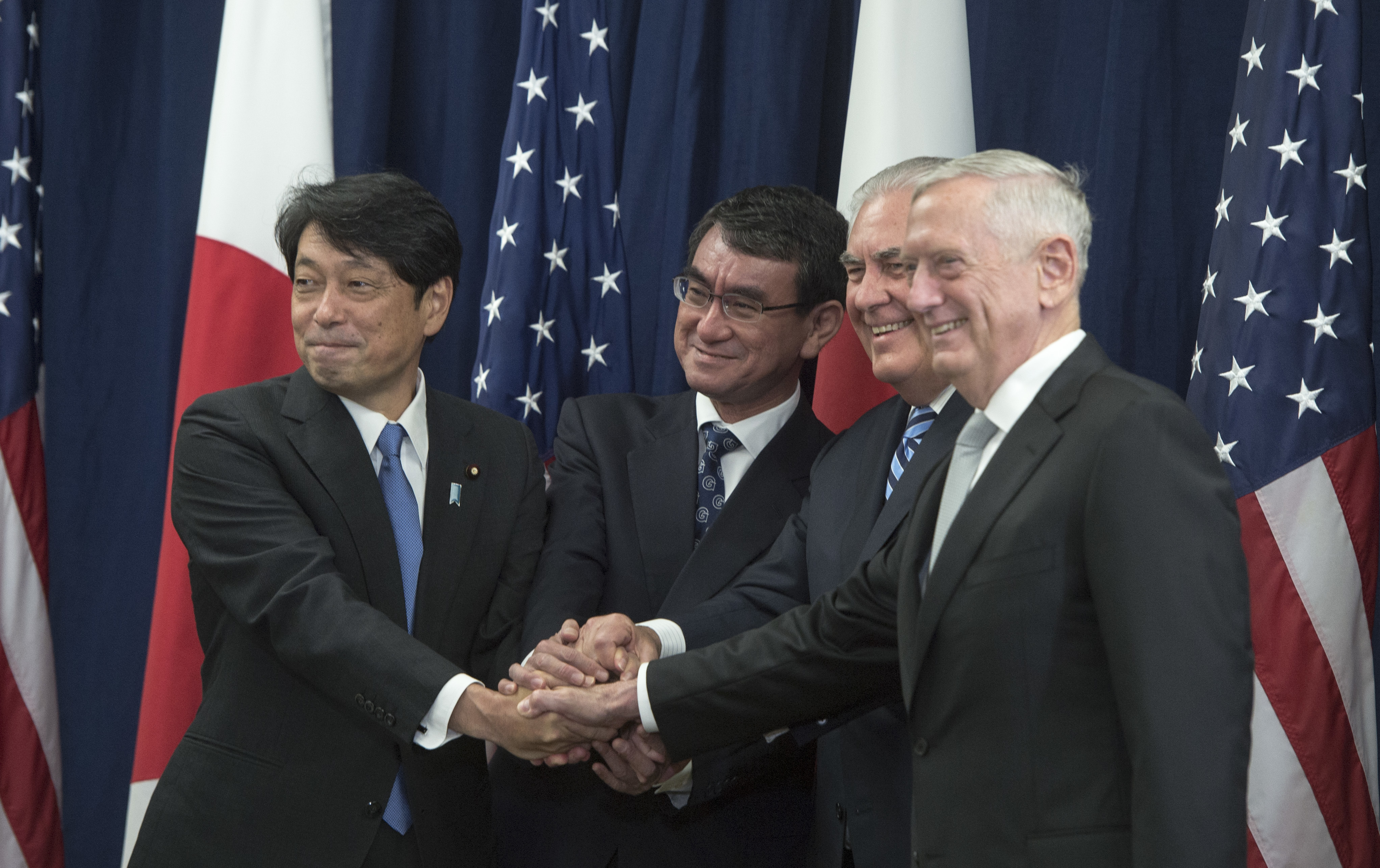
From left to right: Itsunori Onodera, Minister of Defense for Japan; Taro Kono, Minister of Foreign Affair for Japan; Secretary of State Rex Tillerson; and Secretary of Defense Jim Mattis pose for a group photo Aug. 16, 2017, at the State Department in Washington, D.C., ahead of a US-Japan Security Consultative Committee meeting. DOD photo by USAF TSgt. Brigitte N. Brantley.
The United States and Japan are accelerating the implementation of a defense security agreement, focused specifically on missile defense, in light of the increased threat posed by North Korea, the heads of both nation’s militaries and diplomatic corps said Thursday.
The US and Japan are also moving toward the relocation of MCAS Futenma to Camp Schwab and other realignment of US forces in Japan, US Secretary of State Rex Tillerson and Defense Secretary Jim Mattis said in a 2+2 appearance with Japanese Foreign Minister Taro Kono and Defense Minister Itsunori Onodera in Washington, D.C.
The meeting largely focused on the threat posed by North Korea, with the US pledging “without reservation” to honor existing treaties, implement ongoing agreements, and help to defend Japan.
“North Korea’s recent intercontinental ballistic missile and other missile launches are unacceptable provocations, and they must stop immediately,” Tillerson said. “We agreed to bolster our alliance capabilities to deter and respond to North Korea’s unacceptable behavior and other challenges to regional security.”
Thursday’s press conference came after a report emerged that White House chief strategist Steve Bannon said there’s “no military solution” to North Korea. Mattis, asked about those comments, said, “I can assure you, in close collaboration with our allies, there are strong military consequences if DPRK initiates hostilities.”
The US has the capability and will shoot down a missile if it is launched to US territory or the territory of its allies, Mattis said. Onodera said Japan is ready to defend the country with its own capabilities, and Thursday’s meeting with US officials focused on how the US military could quickly come to Japan’s defense if necessary.
Tillerson said he is continuing to push North Korea to come forward for talks, with the end goal of reducing its nuclear capability and the “understanding that the talks will lead to a different conclusion than talks of the past.”
See also: Closer than Ever from the December 2016 issue of Air Force Magazine.